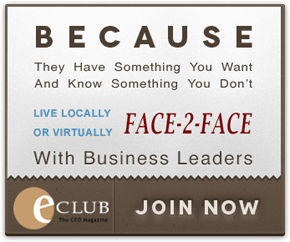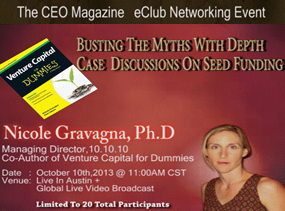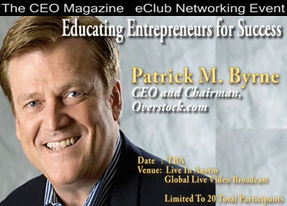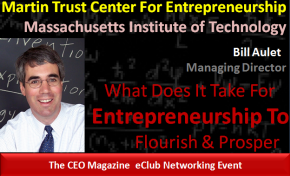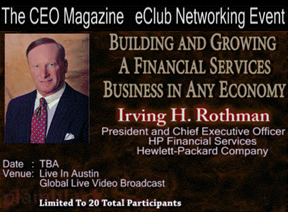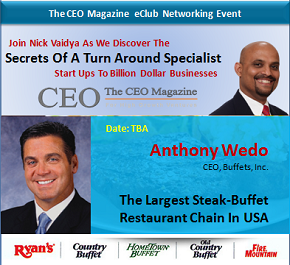You are here
- Guest Blogger |
- Leadership |
- Fri, 05/22/2015 - 23:12
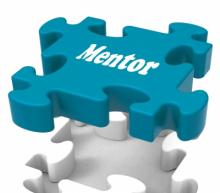
Chip R. Bell, Author, Sprinkles: Creating Awesome Experiences Through Innovative Service
We are in a peculiar business era. Customers demand personalized, tailor-made delight delivered by highly adaptive front line people. New products and services released today can be reverse engineered and duplicated by competitors before close of business tomorrow. Newly acquired skills are obsolete almost overnight. And, “white water” alteration in structure creates a never-ending “boss de jure” experience for employees.
“In times of massive change,” wrote philosopher Eric Hoffer, “The learner will inherit the earth while the learned will remain beautifully equipped to deal with a world that no longer exists.”
Winning organizations are realizing that their ability to learn faster than their adversaries is their only sustainable advantage. These successful organizations are finding and nurturing creative, adaptive, turn-on-a-dime, always-be-learning associates who view change with excitement rather than resistance. And, the leaders of these winning enterprises function as mentors.
What Leader-Mentors Are Like
Winning organizations value creativity over control. They reject the old model of leader as authority and “corporate parent” and embrace the model of leader as liberator, barrier remover, facilitator, support, and partner. Today’s workers are demonstrating they have the maturity and competence to operate effectively with very limited supervision. Yet, they still need mentors who make continuous learning possible, relevant and valued.
The tenants of learning shape the requirements for the generative coach. Countless research instructs us regarding those ingredients that enhance and amplify growth and mastery. Leaders who manage their boss-subordinate or protégé relationships from the assumption of “wisdom being polished” bring an optimistic hope vital to complex learning. These rare leaders are famous for the following characteristics.
Humility
Learning begins with vulnerability. The wise leader unleashes creativity and learning when she or he creates an atmosphere in which it is easy to say, “I don’t know” or “I could be wrong.” Leader-Mentors are quick to acknowledge mistakes and work to bring their humanness and authenticity to their role. They know the most powerful (and most difficult) part of mentoring is being who you are in front of your protégé.
One senior executive at Harley-Davidson Motor Co. begins most manager meetings by having each attendee share “what I screwed up on this week…and, what I learned.” Should the reported “screw-up” not be bold enough, the executive nudges the manager to take larger risks. The goal is not to set people up to lose. Rather, this executive has realized the path to all learning begins with mistakes. Tom Edison’s experiments to create the incandescent light “screwed-up” over a hundred times before his discovery finally worked.
Curiosity
Effective learners possess an unquenchable “what’s around the corner” interest. They ask more questions than most and they dig for the “whys” behind the “whats” more than most. Leader-Mentors show curiosity by being quicker with queries than proclamations. They avoid judgmental tones since they know they will learn more with invitation and acceptance than with evaluation and accusation. They listen to every associate with the same attention they would use were they blessed by an unexpected conversation with a favorite hero.
A senior executive at Verizon ends most meetings by having each manager give a thought provoking question to which the top team needs the answer but lacks the answer. Each attendee is not allowed to discuss the questions raised by their colleagues until the next meeting. At the next gathering one or two questions are selected and discussed, always with great depth and surprising clarity. The senior executive has learned that curiosity starts with internal inquiry and thoughtful reflection rather than “shoot from the hip” answers.
Courage
Walking begins with falling. Without the courage to fall on our duff, little progress would be made. Learners must be willing to experiment with the untested if shaky beginnings are to become confident mastery. Leader-Mentors model courage by themselves taking measured risks. But, more importantly, they en-courage (i.e., release courage) by treating employee mistakes as opportunities for growth, not platforms for rebuke. Remember: it is unlikely HR decided to hire applicants who were lazy, incompetent or malicious!
When Tom Watson, Jr. was CEO of IBM, he put a young executive in charge of an exciting new venture. The executive demonstrated great commitment and worked extremely hard, but managed to loose ten million dollars in a fairly short period of time. Watson asked to meet with the young executive. The story goes that as the executive entered the chairman’s office he blurted, “I presume, sir, I am here to tender my resignation.” Watson reportedly replied, “Resignation, hell, I can’t afford to fire you. I just spent ten million dollars training you!”
Passion
Sustained learning is that acquired through a connection with the heart. Peter Senge, author of The Fifth Discipline wrote: “Innovative learning occurs only when people are striving to accomplish something that matters deeply to them.” Leader-mentors help employees see connections between their individual learning’s and organizational purpose. Such leaders are clear on their vision and passionately live that vision through their actions.
Ask twenty people to name the greatest leaders of all times. Sure, you might get a military general or two. But, the list will likely be made up of leaders who stirred their followers with fire than leaders who lectured their followers with reasoning. Kennedy, King, Teresa, and Gandhi were not famous for their rationalism...nor is Jeff Bezos (CEO of Amazon), Gary Kelly (CEO of Southwest Airlines), Ginni Rometty (CEO of IBM), the late Sam Walton or the late J. Willard Marriott, Sr. Leaders invitations to actions are embossed on their own yearnings to express their “cause” to others in ways that encourages others to join, to learn and to excel.
There has never been a period in history when having wisdom was more critical and acquiring wisdom more challenging. Scheduling training classes when people are ready and able to learn is getting more difficult. Finding the right mentor for a given protégé has always been tough. Yet, the need for up-to-minute proficiency has become vital for survival. The gap can only be filled by ensuring that “mentor” is a key part of the role of every leader.
[Image courtesy of Stuart Miles at FreeDigitalPhotos.net]
About the Author
Chip R. Bell is a renowned keynote speaker and the author of several best selling books including Managers as Mentors (with Marshall Goldsmith). His newest book is Sprinkles: Creating Awesome Experiences Through Innovative Service. He can be reached at www.chipbell.com.
Comments
Follow The Blog
Blog Categories
- Business Ops. (45)
- Editors (3)
- Entrepreneurship (196)
- Finance (25)
- Leadership (529)
Blog Authors
- Guest Blogger (835)
- Cynthia Kay (92)
- Linda Henman (78)
- Dianna Booher (46)
- Craig Ross (31)




